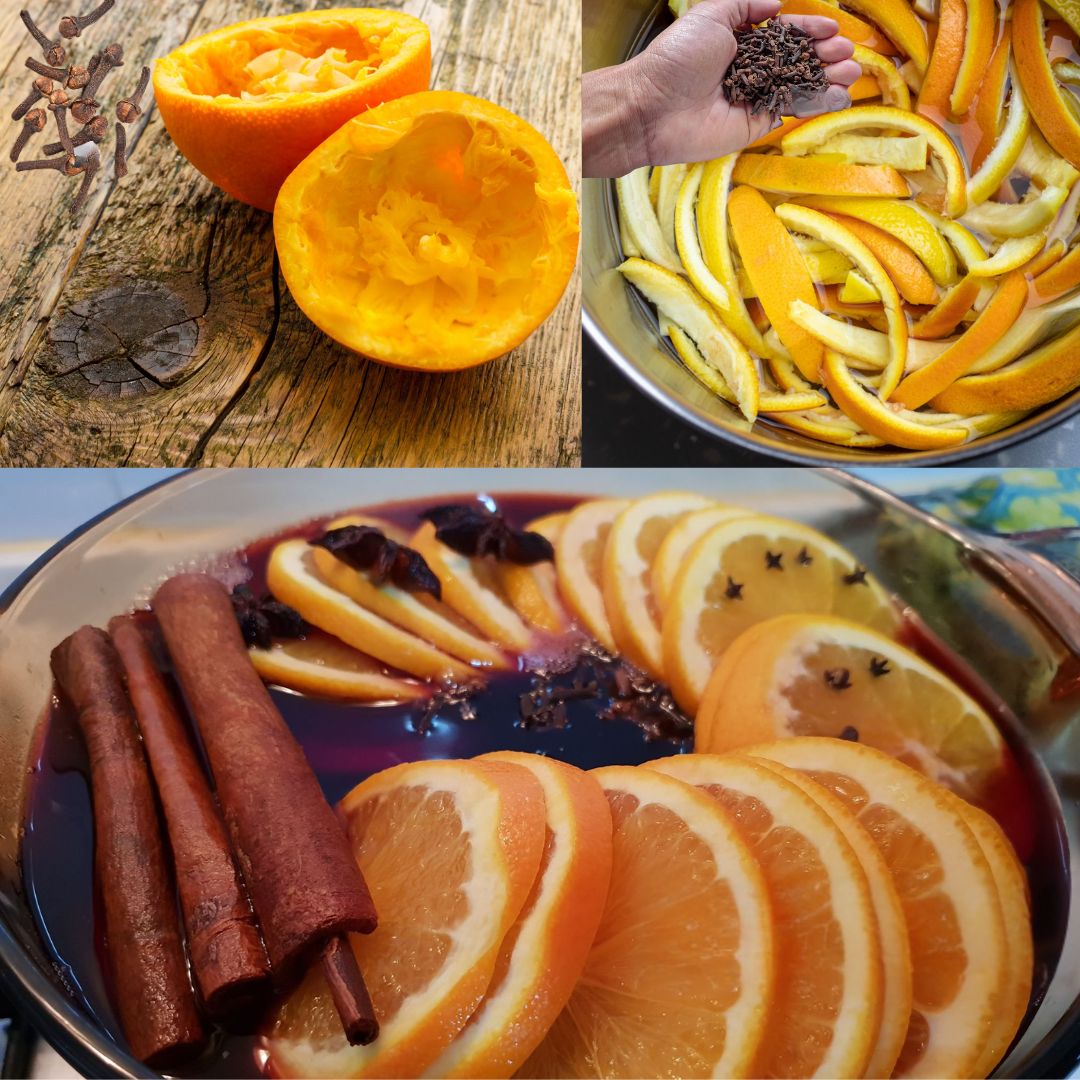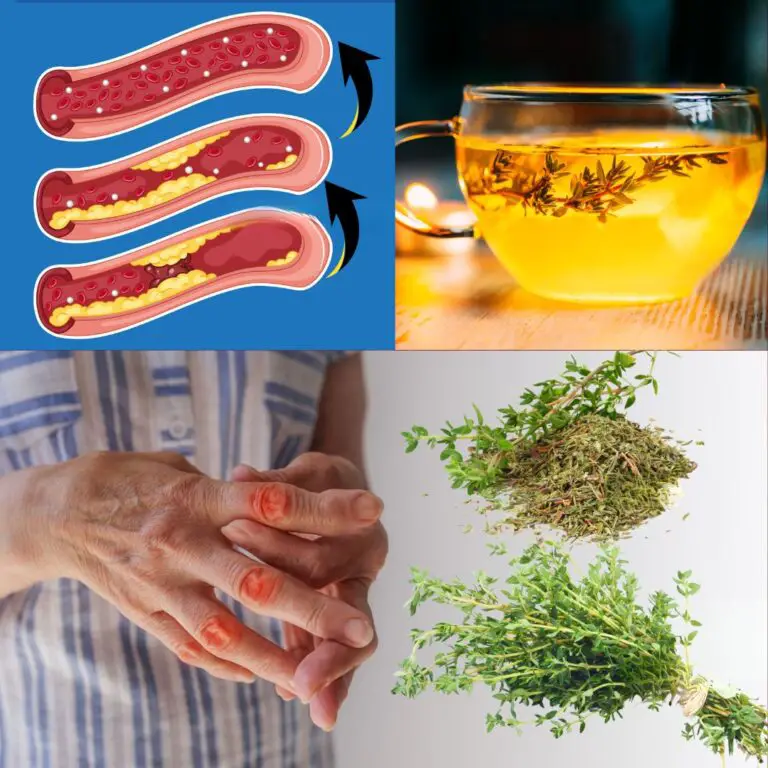Boiling Orange Peels with Cloves: A Traditional Practice from Our Grandmothers
Introduction
There’s something deeply comforting about revisiting traditions passed down through generations—simple, time-honored remedies and rituals that nourish both body and soul. One such beautiful tradition, cherished by many grandmothers around the world, is boiling orange peels with cloves. This humble, fragrant practice is much more than just a kitchen ritual; it’s a ritual of wellness, aroma, and nostalgia wrapped into one steaming pot of goodness.
Boiling orange peels with cloves fills your home with a warm, inviting scent that instantly transports you to a place of calm and coziness. But beyond the delightful aroma, this traditional method carries benefits that are both practical and healthful. Whether you’re seeking a natural air freshener, a soothing herbal tonic, or simply a way to connect with your roots, this recipe has something special to offer.
In this comprehensive guide, you’ll discover why this age-old practice deserves a spot in your modern kitchen, how to prepare it perfectly, and all the little tips and tricks that make it an enduring favorite.
Why You’ll Love This Recipe
What makes boiling orange peels with cloves so irresistible? First, it’s the simplicity. You don’t need fancy ingredients or elaborate equipment. Just a handful of leftover orange peels, some cloves, water, and a stove — that’s it. It’s an excellent way to reduce waste by using citrus peels that would otherwise be discarded, turning them into something useful and fragrant.
The aroma itself is profoundly therapeutic. The zesty, fresh scent of orange peels combined with the warm, spicy notes of cloves creates a natural diffuser that purifies your living space without synthetic chemicals. It’s perfect for creating a calming atmosphere after a long day or during festive seasons when you want your home to smell inviting and cozy.
Moreover, the concoction can also be used as a gentle herbal remedy. Orange peels contain antioxidants and vitamin C, while cloves are known for their antiseptic and anti-inflammatory properties. Together, they make a mild, natural infusion that can help soothe minor colds, boost your immune system, or calm your mind.
Finally, this practice connects us to the wisdom of our grandmothers, reminding us of the simple joys and natural remedies that sustained past generations. It’s a beautiful tradition that’s easy to integrate into your daily routine, bringing both sensory pleasure and wholesome benefits.
Ingredients
To prepare this traditional boiled orange peel and clove infusion, you’ll need the following:
- Orange peels: From 2 to 3 medium-sized oranges (preferably organic to avoid pesticides)
- Whole cloves: 8 to 12 cloves (adjust based on your preference for spice intensity)
- Water: Approximately 4 cups (1 liter)
- Optional: Cinnamon sticks, star anise, or fresh ginger for added flavor complexity
Each ingredient serves a purpose: the orange peel provides the citrus aroma and essential oils, cloves add warmth and spice, and water is the base that extracts all these wonderful essences.
Necessary Tools
This recipe calls for minimal tools, making it incredibly accessible. Here’s what you need:
- A medium-sized saucepan or pot with a lid
- A measuring cup for water
- A wooden spoon or ladle for stirring
- A strainer or slotted spoon (optional, for removing peels and cloves after boiling)
- A stove or heat source
No special kitchen gadgets are necessary, making this a perfect DIY project for any household.
Ingredient Swaps and Additions
While the classic combination of orange peels and cloves is fantastic on its own, you can customize this traditional practice to suit your taste and needs. Here are some ideas:
- Ingredient swaps:
- If you don’t have oranges, lemon or grapefruit peels work beautifully too.
- Instead of whole cloves, you can use ground cloves, but reduce the amount as ground spices are more potent.
- Additions:
- Add a cinnamon stick for a richer, sweeter aroma.
- Fresh ginger slices can add a warming, slightly spicy note and boost the immune-boosting qualities.
- Star anise contributes a licorice-like scent that pairs wonderfully with cloves.
- A few drops of vanilla extract can make the scent more rounded and comforting.
For more insight into cloves and their benefits, Medical News Today’s article on clove uses and benefits offers a great scientific overview.
Step-by-Step Instructions
Step 1: Prepare the Orange Peels
Wash the oranges thoroughly to remove any dirt or residues. Use a peeler or knife to remove the peels in strips or chunks, avoiding too much of the bitter white pith. The thinner the peel, the more aromatic oils you’ll extract.
Step 2: Add Ingredients to the Pot
Pour about 4 cups of water into the saucepan. Add the orange peels and cloves (and any optional spices you’re using).
Step 3: Bring to a Boil
Place the pot on medium-high heat and bring the mixture to a gentle boil. You’ll start to smell the fragrance almost immediately.
Step 4: Simmer and Steep
Once boiling, reduce the heat to low and let it simmer uncovered for about 15 to 20 minutes. Stir occasionally to prevent sticking and to help release more aroma.
Step 5: Remove from Heat and Cool Slightly
After simmering, remove the pot from the heat. Let the mixture cool slightly to release even more fragrance into the air.
Step 6: Strain and Use
If desired, strain out the peels and cloves using a slotted spoon or sieve. You can discard them or dry the peels for future use. Pour the infusion into a heat-safe container if you want to use it as a warm drink or tonic.
Pro Tips for Success
- Use organic oranges whenever possible to avoid pesticide residues on the peels.
- Do not discard the peels after boiling — dry them and save for potpourri or add them to compost.
- Simmer gently to avoid bitterness from the pith seeping into the water.
- Adjust the number of cloves to your scent/spice preference—start with fewer and add more next time if desired.
- Refresh the pot with a little more water and reheat to revive the fragrance throughout the day.
- For a more intense aroma, add a splash of orange essential oil after simmering.
- Keep the pot covered when not actively simmering to trap the aroma.
If you want to dive deeper into herbal remedies and their safe use, the National Center for Complementary and Integrative Health’s herbal remedies guide is a fantastic resource.
Serving Suggestions
While traditionally this practice is used as a natural air freshener or for wellness, here are some creative ways to enjoy it:
- As a warm herbal tea: Sweeten the strained infusion with honey or a touch of maple syrup.
- A base for homemade syrups: Reduce the infusion with sugar to make a fragrant syrup for cocktails or desserts.
- A fragrant bath soak: Add the cooled infusion to your bath for an aromatic and soothing soak.
- A natural fabric freshener: Use the cooled liquid to lightly mist linens or curtains.
- In culinary uses: Add a splash to baked goods like cakes or muffins for a subtle citrus-clove aroma.
For more inspiration on natural home scents, see our article on How to Make Homemade Citrus Potpourri for Natural Air Freshening.
Storing and Reheating
You can store any leftover infusion in a sealed container in the refrigerator for up to 3 days. When ready to use, reheat gently on the stove or in the microwave until warm but not boiling. This helps revive the aroma and flavor.
Avoid boiling it again on high heat, as this may cause bitterness or degrade the essential oils.
Nutritional Information
While primarily used for aroma and wellness, if consumed as a tea, here’s a rough nutritional overview per cup (240ml):
- Calories: 5-10 (minimal, mostly from orange oils)
- Vitamin C: Trace amounts from orange peel
- Antioxidants: Moderate, due to citrus flavonoids
- Anti-inflammatory compounds: Present in cloves (eugenol)
- Sugar: 0 (unless sweetened)
This infusion is naturally calorie-free and hydrating, making it a healthy, comforting beverage.
For detailed information on the nutritional benefits of orange peels, Healthline’s article on orange peel benefits is an excellent read.
FAQs
Q1: Can I use dried orange peels instead of fresh?
Yes! Dried orange peels work well but may require a longer simmer to extract full aroma.
Q2: How often can I boil orange peels with cloves?
You can do this as often as you like—daily for wellness or whenever you want to freshen your home.
Q3: Is this safe for children and pets?
Generally safe, but avoid ingestion of large quantities by pets, especially cloves.
Q4: Can I add other citrus peels?
Absolutely! Lemon, lime, and grapefruit peels complement the orange perfectly.
Q5: How long does the scent last?
The aroma can last several hours indoors, especially if simmered periodically.
Conclusion
Boiling orange peels with cloves is a delightful, versatile tradition that reconnects us to natural living and the wisdom of our grandmothers. Whether you want to fill your home with comforting scents, enjoy a gentle health tonic, or simply indulge in a calming ritual, this practice offers endless benefits. Easy, affordable, and sustainable, it’s the perfect recipe to bring warmth and wellness into your everyday life. So, gather those leftover peels and cloves, and start boiling—your senses and soul will thank you!







